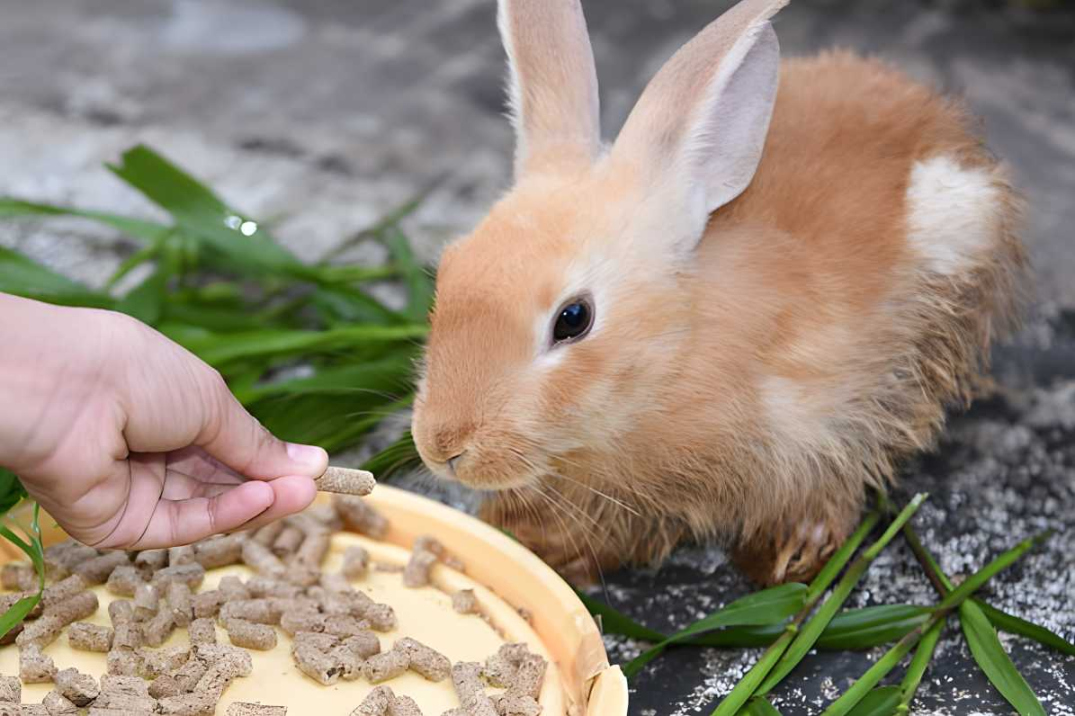How Long Can Rabbits Go Without Food?
Rabbits are herbivores and have a unique digestive system that requires them to constantly eat to maintain their health. Unlike some other animals, rabbits cannot go very long without food before experiencing serious health issues. Proper nutrition is vital for their overall well-being, and any deviation from their regular eating habits should be taken seriously.

The Importance of Regular Feeding
Rabbits have a high metabolic rate, which means their bodies are constantly working, and they need to consume food frequently to keep up with their energy requirements. Their digestive system is designed to process fibrous foods like hay, grass, and leafy greens, and their gut needs a constant supply of food to keep functioning properly.
When rabbits don’t eat for an extended period, their digestive system can become sluggish, leading to a condition known as gastrointestinal stasis. This condition can be life-threatening if not promptly addressed. It is crucial to monitor a rabbit’s eating habits daily to ensure they are maintaining a healthy appetite and consuming enough food.
How Long Can Rabbits Go Without Food?
In general, rabbits should not go more than 24 hours without eating. Beyond this point, their digestive system starts to shut down, and their health can rapidly deteriorate. However, it is essential to keep in mind that every rabbit is different, and the time they can go without food can vary depending on various factors, including their age, overall health, and stress levels.
If a rabbit has not eaten for 12 hours, it is a cause for concern. At this point, it is recommended to seek veterinary assistance to determine the underlying cause and take appropriate action. Immediate medical attention is necessary if a rabbit has gone without food for 24 hours or longer.
Signs of a Rabbit Not Eating
It is crucial to pay close attention to your rabbit’s eating habits and to be aware of the signs that indicate they may not be eating enough or at all. Some common signs that your rabbit is not eating include:
- Loss of appetite
- Weight loss
- Reduced or no fecal output
- Lethargy and decreased activity
- Changes in behavior
- Soft or sticky stool
- Excessive grooming or lack of grooming
If you notice any of these signs, it is essential to take action and seek veterinary advice. Prompt intervention can prevent potential health complications and save your rabbit’s life.
FAQs about a Rabbit’s Eating Habits
1. Can rabbits go without food overnight?
Yes, rabbits can go without food overnight. However, if a rabbit goes without food for more than 12 hours, it is recommended to seek veterinary assistance as it may indicate an underlying health issue.
2. How long can a healthy rabbit go without eating?
A healthy rabbit should not go more than 24 hours without eating. Beyond this point, their digestive system can shut down, and their health could rapidly deteriorate.
3. Should I be concerned if my rabbit skips a meal?
It is essential to monitor your rabbit’s eating habits closely. While occasional skipping of a meal might not be a cause for concern, if your rabbit consistently skips meals or shows other signs of decreased appetite, it is advisable to consult a veterinarian.
4. How can I encourage my rabbit to eat?
If your rabbit is not eating, you can try offering their favorite foods, providing fresh hay, and ensuring a calm and stress-free environment. However, if your rabbit continues to refuse food, it is important to consult a veterinarian for a proper evaluation.
In conclusion, rabbits should not go more than 24 hours without eating. Regular feeding is crucial for their digestive health, and any deviation from their normal eating habits should be taken seriously. If you notice signs of a rabbit not eating, promptly seeking veterinary assistance is essential to prevent any potential health complications. Remember to monitor your rabbit’s eating habits closely and provide them with a balanced diet to ensure their overall well-being.
Related Articles…
Copyright Notice:
The images displayed here are sourced from the internet, with copyrights held by respective owners. For removal of any copyrighted image, please email us.